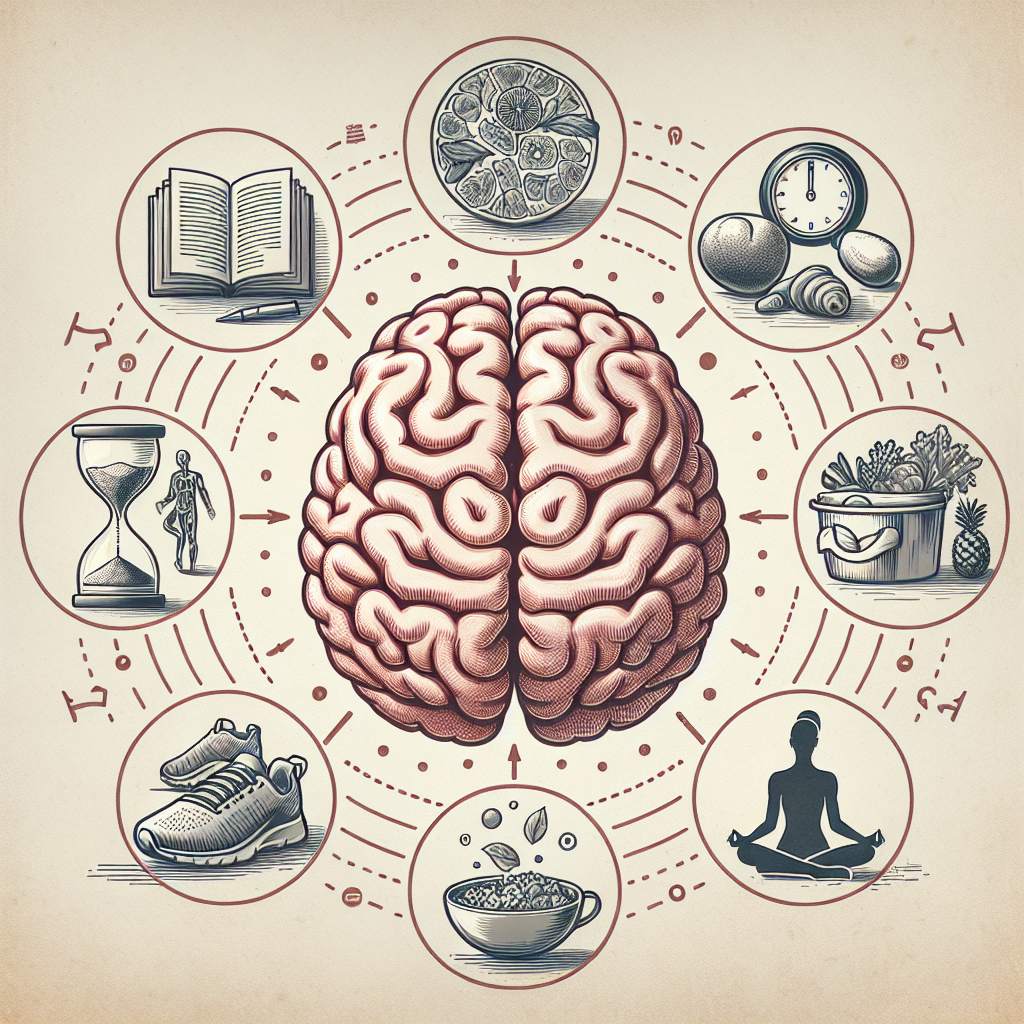
Introduction
In a world brimming with responsibilities, remembering essential information — whether it’s one-line reminders or critical work-related details — can be a monumental challenge. Short-term memory plays a crucial role in our daily lives, allowing us to retain information long enough to utilize it effectively. Imagine being able to recall information effortlessly during meetings, classes, or even casual conversations. This article will delve into 5 Simple Techniques to Boost Your Short-Term Memory, accompanied by real-world applications and insights to help you unlock your cognitive potential.
Why Short-Term Memory Matters
Short-term memory is like a mental sticky note, holding onto information for brief periods — typically ranging from 15 to 30 seconds. It allows us to carry out daily tasks, engage in conversations, and make decisions based on recent information. Notably, research has shown that individuals with better short-term memory can perform better in academic and professional settings.
Case Study: The Impact of Memory Enhancement Techniques
Researchers in a study published in Psychological Science found that individuals using memory techniques, such as mnemonics, showed a significant improvement in their short-term recall abilities. This demonstrates the effectiveness of structured techniques in memory retention.
Technique 1: Chunking Information
One of the most effective ways to enhance your short-term memory is through chunking, a method that involves breaking down large amounts of information into smaller, manageable units.
Why It Works
The human brain can typically hold only about seven items in short-term memory. By chunking information into groups, you effectively increase the number of items you can remember.
Example
For instance, consider a phone number: instead of trying to memorize "1234567890", you can chunk it into "123-456-7890". This simple modification can significantly help you remember digits more easily.
A Quick Table: Chunking Examples
| Original Information | Chunked Version |
|---|---|
| 2020202030202020 | 2020-2020-30-2020 |
| ABCDEFGHIJ | ABC – DEF – GHI – J |
| 1994199519961997 | 1994 – 1995 – 1996 – 1997 |
Technique 2: Use of Mnemonics
Mnemonics are memory aids that can help improve recall. Associating new information with familiar concepts creates mental shortcuts that facilitate easier retrieval.
Popular Mnemonic Strategies
- Acronyms: Forming a new word from the first letters of the items to remember (e.g., HOMES for the Great Lakes: Huron, Ontario, Michigan, Erie, Superior).
- Rhymes: Creating short rhymes to memorize facts (e.g., "Thirty days hath September…").
- Visualization: Imagining a vivid scene related to the information (e.g., picturing a lion for "L" in a list).
Case Study: Mnemonics in Action
In a study involving medical students, participants who employed mnemonic techniques to memorize complex terminology performed better on exams compared to their peers relying solely on rote memorization.
Technique 3: Mind Mapping
Mind Mapping is a graphical technique that allows you to visualize relationships between concepts, which can immensely aid in memory retention.
How It Helps
By organizing information visually, you engage both your analytical and creative sides, leading to a deeper understanding and better recall.
Practical Guide
- Start with a central idea in the middle of the page.
- Branch out with subtopics related to the central idea.
- Use colors, images, and symbols to make it unique and memorable.
Benefits in Real Life
Students have reported higher retention rates when using mind maps for studying compared to traditional note-taking methods.
Technique 4: Spaced Repetition
Spaced Repetition is a technique that involves reviewing information at increasing intervals. This strategy leverages the psychological spacing effect to enhance retention.
The Science Behind It
When you revisit material after a period of time, you reinforce the memory and make it easier to recall. This is particularly effective for learning new languages or technical skills.
Implementation
- Review new information immediately after learning it.
- Revisit that material after a day, then a week, then a month.
- Use apps like Anki or Quizlet for digital reminders!
Case Study: Language Learning
A team of researchers found that language learners using spaced repetition software significantly outperformed those who crammed information right before tests.
Technique 5: Healthy Lifestyle Choices
Lastly, maintaining a healthy lifestyle plays a crucial role in memory enhancement, particularly for short-term memory.
Key Factors
- Nutrition: Consuming brain-boosting foods such as fish, nuts, and leafy greens can enhance cognitive function.
- Exercise: Regular physical activity promotes blood flow to the brain and has been linked to improved memory.
- Sleep: Quality sleep is crucial for consolidating memories, helping to convert short-term memory into long-term storage.
Summary of Research
According to a Harvard Health report, consistent exercise can enhance memory and cognitive function, proving that lifestyle choices are intrinsically linked to mental capacity.
Conclusion
Enhancing your short-term memory is not an unattainable goal. With the 5 Simple Techniques to Boost Your Short-Term Memory discussed here — chunking, mnemonics, mind mapping, spaced repetition, and maintaining a healthy lifestyle — you can significantly improve your ability to remember and utilize information effectively. These techniques are not just for students or professionals; they can be beneficial for anyone looking to sharpen their cognitive skills.
By incorporating these strategies into your daily routine, you open the door to a world where you can recall information effortlessly, boosting your confidence in both personal and professional settings. So why wait? Start implementing these techniques today and watch your memory transform!
FAQs
1. How long does it take to see improvements in short-term memory?
Improvements can often be noticed within a few weeks of consistent practice using these techniques.
2. Can these techniques be used for long-term memory?
Absolutely! Most of these strategies can be adapted to enhance both short-term and long-term memory retention.
3. Are there any specific foods that can enhance memory?
Yes, foods rich in Omega-3 fatty acids like salmon and antioxidants found in berries are known to support brain health.
4. How often should I practice these techniques?
Regular daily practice, even in short sessions, can help solidify these memory strategies over time.
5. Are these techniques suitable for all ages?
Yes, these techniques can be adjusted and beneficial for individuals of all ages, from students to seniors.
By utilizing these 5 Simple Techniques to Boost Your Short-Term Memory, you empower yourself to retain and recall important information with ease. Make the commitment to developing your memory — the results will undoubtedly be rewarding!













